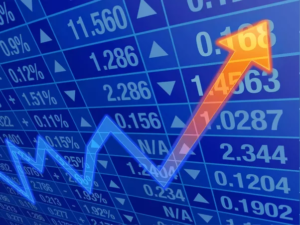 A year or two ago, the phrase “share buybacks” was a phrase only known to those in and around the world of corporate finance. It refers to a company’s use of available cash to purchase its own shares in the open market. The effect of this is to reduce the total number of shares outstanding, which makes the remaining shares more valuable. Recently, however, share buybacks have become enmeshed in political debates as shorthand for actions taken by corporate America and encouraged by Wall Street that are not in the best interest of workers and society generally. For example, The New York Times recently reported on how cash freed up by the recent tax cuts are being spent on share buybacks, as opposed to more worthy uses such as hiring new employees.
A year or two ago, the phrase “share buybacks” was a phrase only known to those in and around the world of corporate finance. It refers to a company’s use of available cash to purchase its own shares in the open market. The effect of this is to reduce the total number of shares outstanding, which makes the remaining shares more valuable. Recently, however, share buybacks have become enmeshed in political debates as shorthand for actions taken by corporate America and encouraged by Wall Street that are not in the best interest of workers and society generally. For example, The New York Times recently reported on how cash freed up by the recent tax cuts are being spent on share buybacks, as opposed to more worthy uses such as hiring new employees.
While I wouldn’t say that share buybacks are particularly beneficial to society in themselves, I’m not quite sure why they’ve been singled out in this manner. Stepping back, if a corporation finds itself with excess cash, which could be because of a corporate tax cut or simply that the company has been profitable recently, it has the following broad choices of what to do with the money:
- Give current employees a raise and/or hire new employees;
- Make capital expenditures, i.e., buy new stuff to upgrade or expand the company’s business;
- Pay a dividend, i.e., distribute the cash to all shareholders proportionally;
- Do share buybacks;
- Acquire another company;
- Pay down debt; or
- Keep the cash around for a rainy day, in the corporate equivalent of a savings account.
The first two actions are thought of, properly, as broadly beneficial to society. Increased pay to employees helps them directly, and capital expenditures indirectly help the economy and the people working for the company from which stuff is bought. Of course, when companies make a decision to spend cash in this manner, while there may be some PR value to such an announcement, their primary reason for doing it is that they think it will be, long-term, beneficial to the company’s bottom line. For example, they give existing employees a raise because that’s what they think is necessary to retain good workers. (There is a debate about whether companies that say they find it difficult to find good employees could solve the problem pretty simply by raising their pay, but that’s an issue for another day.)
The remaining uses of available cash don’t have an obvious beneficial societal effect, though they’re not immediately harmful either, except in the sense that it may be a wasted opportunity. A dividend and a share buyback differ in their mechanics, but the broad effect is the same: it’s a return of excess cash to shareholders. (And the returned cash could potentially have economically beneficial effects, if for example it’s used by the shareholder personally to purchase stuff.) Accordingly, it’s not clear to me why the act of buying back shares has become a political hot potato, while a company that raises its dividend by the same aggregate amount isn’t subject to the same scrutiny.